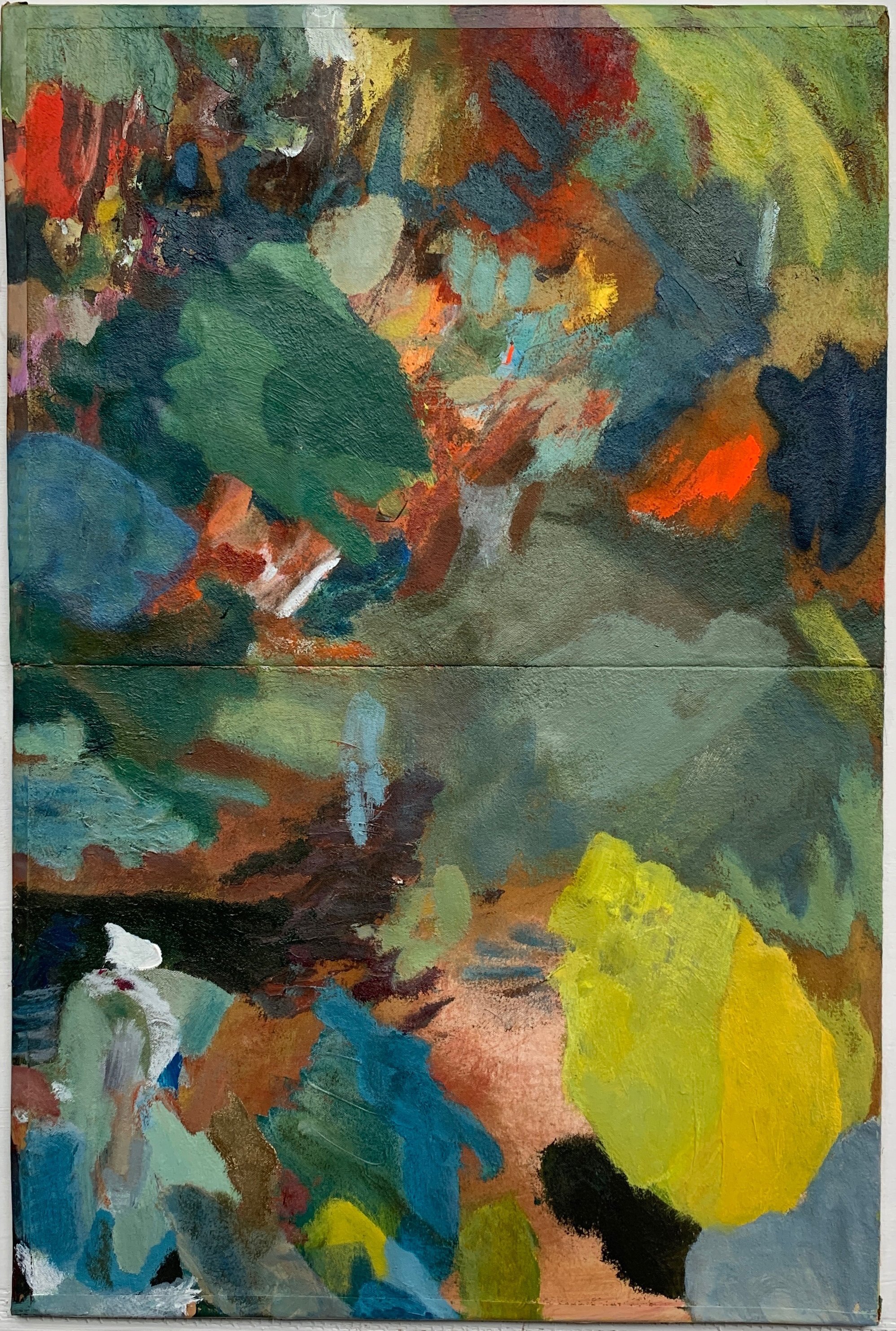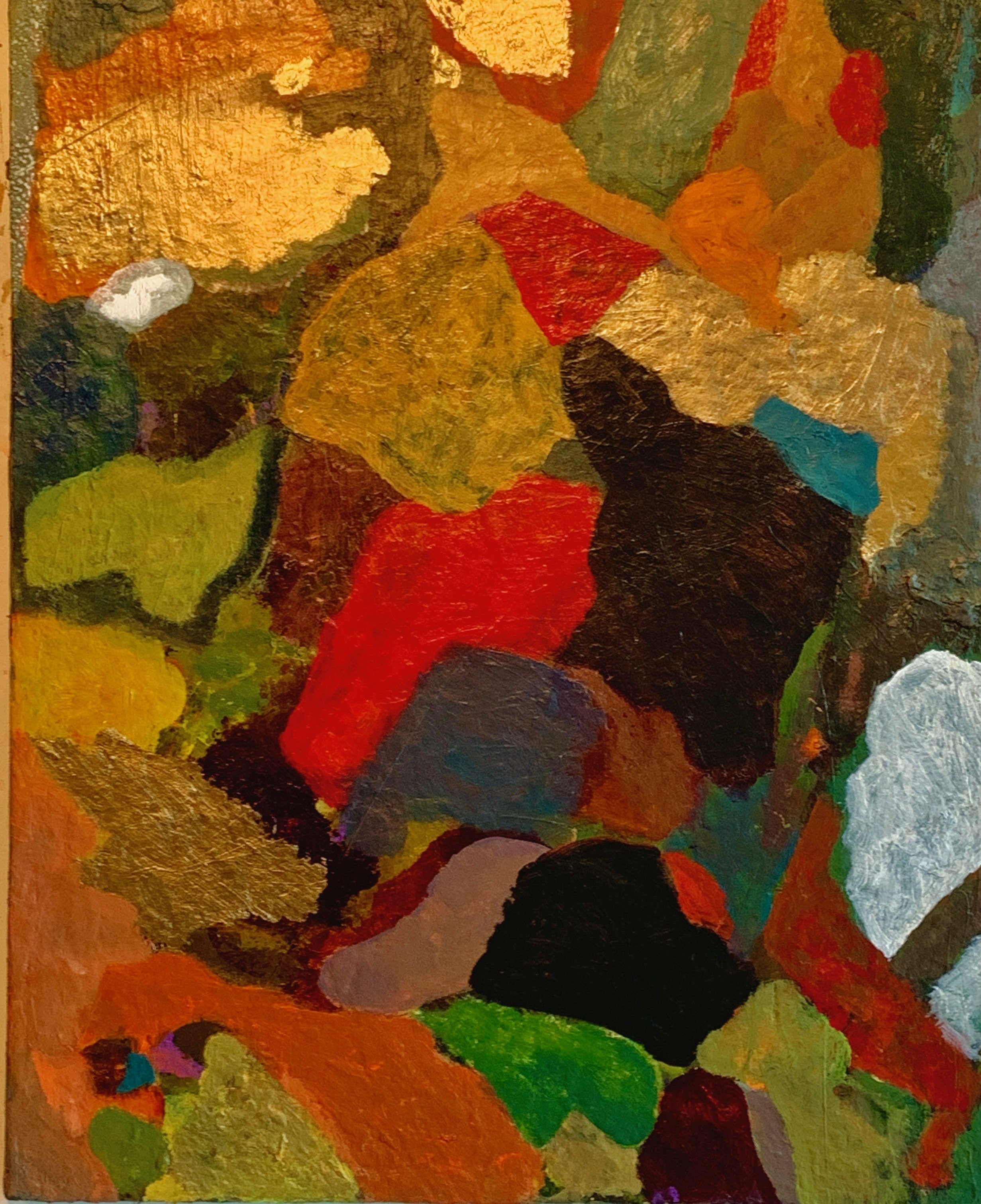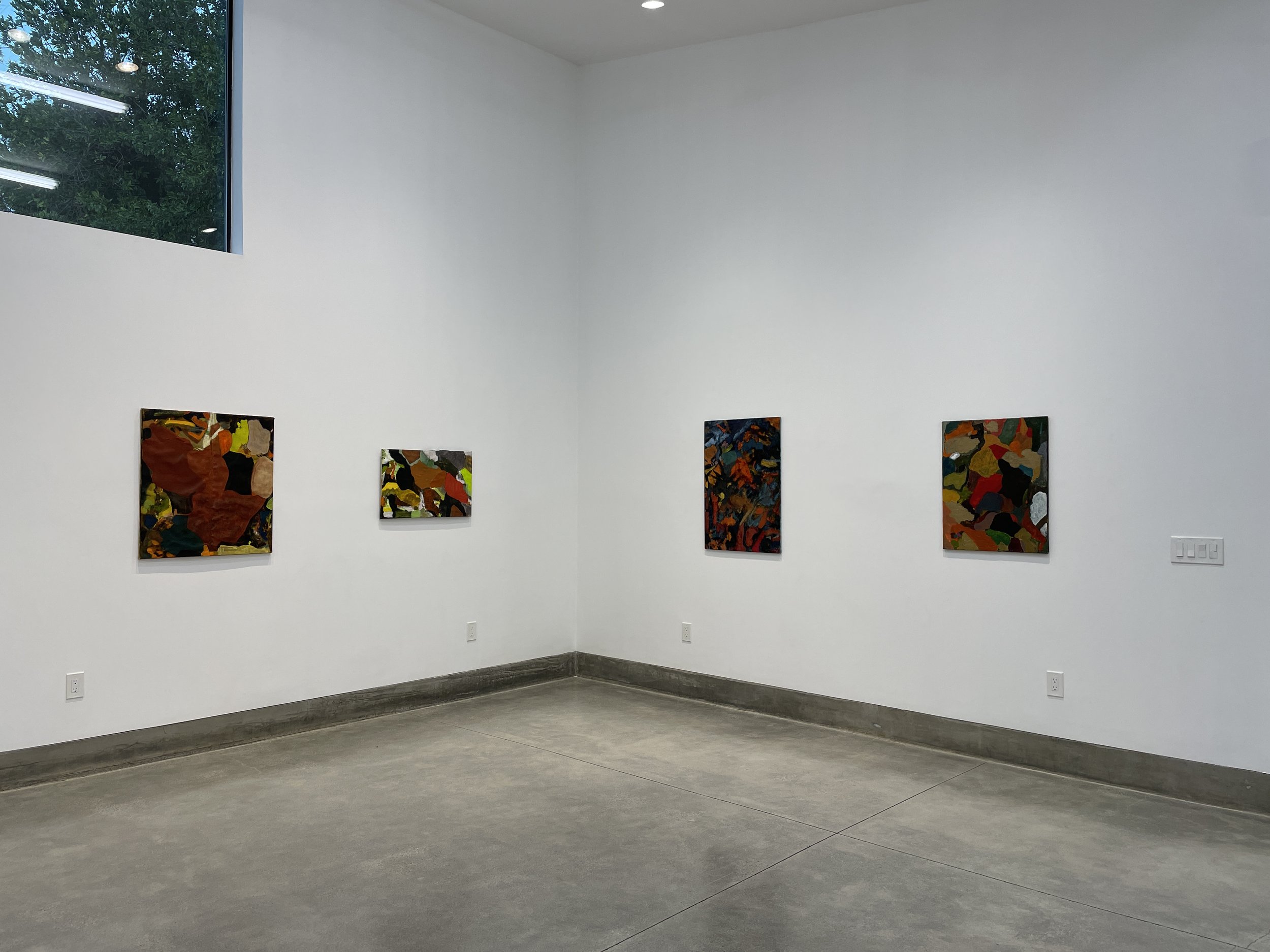Rodney Harder Ready to Go
November 12th thru December 10th


Rodney Harder’s Visionary Abstractions
Rodney Harder paints abstract paintings. It has been his passion since a young person. It comes from a long-standing interest in the materiality of paint and the spatial properties of color. The challenge of abstraction is to invent a personal or subjective formal language, which usually means finding a way to problematize space, to create or uncover relations and differences in such a way that one finds oneself in a process of search and discovery. Some do this by inventing a formal visual language. Others do this by treating form as a way to reveal or interrogate the artist’s subjectivity, finding formal patterns produced by invisible mental and sensible forces mostly by seeing abstraction as a way of uncovering one’s feelings or even expressions of those feelings.
Rodney Harder represents the latter. He approaches each work as if he is searching for something, waiting for it to be revealed, actually working for it until it is revealed. Rodney is more invested in color and materiality than form itself, perhaps because he is attracted to the sensible quality that materiality possesses. It is, on one level, a metaphor for sense experience. The texture and viscosity of paint is something that is viscerally experienced and he responds to it as if it has a direct connection to his subjectivity. Color allows these feelings and sensations to exist in space. The two together are used to locate or identify something familiar even if unseen.
The psychological component in Rodney Harder’s work takes him beyond the formalism of the traditions in European abstraction and even Euro-American expressionism. He has been painting for more than 40 years and has developed a long history of paintings that are interrogating; experimentations that resemble psychological explorations of materials. This exhibition allows us to observe the special way that Rodney Harder uses color, texture and materiality to reveal the hidden landscape of the human mind.
- Charles Gaines 2022






